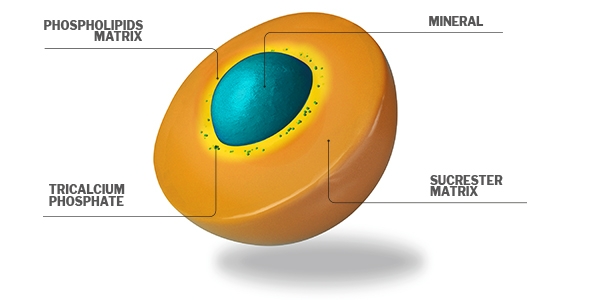Promotional Features
Eating disorders: Can nutritional deficiencies be overcome with high doses of food supplements?
Eating Disorders (ED) are real pathologies characterized by an alteration of eating habits and excessive concern for weight and body shape.
An eating disorder may present from many factors, including biological, genetic, environmental, social, psychological and psychiatric ones. Among the most common ED-related conditions are anorexia and bulimia, which are related to an unknown etiology and most commonly begin in adolescence.
These clinical conditions have unique and varied symptoms, such as eating restriction, or conversely, over- and uncontrolled eating (compulsive binge eating), distortion of body image, resistance to treatments, constant pursuit of perfection, obsessive compulsivity and dysphoric mood. These are often chronic and recurrent disorders, and the lack of understanding of the pathogenesis of these diseases has obstructed the development of effective interventions, especially for anorexia.
Anorexia and bulimia, therefore, are complex diseases determined by psychological and emotional discomfort conditions, which therefore require treatment of both the dietary and psychic problems. These disorders can generally occur in people of different ages, gender, and social class, but are usually more common in young women aged 15-25.
Anorexia
Clinical syndrome characterized by a reduction or loss (apparent or real) of appetite/desire to feed. On the basis of pathogenetic mechanisms are distinguished:
- Anorexia nervosa, a psychiatric disease characterized by intentional reduction of nutrition and impaired perception of body image
- Secondary anorexia which is defined by an involuntary reduction in appetite associated with acute or chronic pathologies
A person becomes anorexic when, by reducing or interrupting their usual diet, they drop below 85% of normal weight for their age, gender and height. Often the anorexic subjects begin to manifest the disease by avoiding all foods deemed fat and focusing on ‘healthy’ low-calorie foods, with an obsessive attention to the caloric content and composition of foods.
Bulimia
Bulimia is a disorder of eating behaviour that consists in a pathological voracity and excess in eating. In fact, the bulimic person is able to over-eat, reporting a condition of impotence in stopping eating (binge eating).
After compulsively eating, the individual generally feels guilty and punishes himself by inducing vomiting or taking diuretics and laxatives with the intent of losing weight. Bulimia subjects may be normal weight, underweight or overweight, unlike anorexic individuals who are always underweight.
Physical and psychological consequences
All EDs lead to a state of malnutrition, which by definition is "the set of structural and functional alterations in the body caused by excess or insufficient energy and/or one or more nutrients.” Among the physical effects of these disorders, the elevated state of malnutrition involves the onset of gastrointestinal ulcers, dehydration, damage to teeth and gums, heart, kidney and liver diseases.
Common psychological effects include: depression; low self-esteem; sense of shame and guilt; difficulty in maintaining social and family relationships; mood swings with a tendency to manic behaviour; and difficulty concentrating and memorizing.
Nutritional deficiencies
In subjects with ED, nutrition may be insufficient to ensure the correct amount of nutrients, due to compulsive controls for each type of food that is ingested, self-induced vomiting and/or abuse of laxative drugs and diuretics.
The result, therefore, is a state of general deficiency that should be restored by taking food supplements at high doses, with the aim of balancing the quantities of macronutrients (e.g. carbohydrates to generate energy) and micronutrients (e.g. iron, magnesium) which are fundamental to the proper functioning of the human body.
Among the various complications arising from these nutritional deficits, the presence of iron deficiency and the deficiency of vitamin D associated with deterioration of bone health are frequently found. In addition, even the frequent zinc deficiency in subjects can more easily expose them to the attack of certain viruses, such as Rhinoviruses responsible for the common cold.
Food supplements
For this reason, in cases presenting clear deficiency of one or more nutrients, it can be advisable to use complete food supplements. ApportAL® is a nutritional supplement based on essential elements of which these subjects are often deficient, such as iron, zinc, magnesium, selenium, B vitamins and vitamin D.
The minerals contained in Apportal® (iron, magnesium, zinc, iodine and selenium) are formulated with Sucrosomial® technology, a patent of Pharmanutra S.p.a, in which minerals are protected by a matrix of phospholipids and sucrose esters of fatty acids; this structure takes the name of Sucrosoma® (figure), which allows a high absorption and excellent gastrointestinal tolerance, overcoming the limits related to the conventional integration of these minerals.
Thanks to the unique formulation of its 19 functional nutrients, in only 18 Kcal per sachet, ApportAL® helps to prevent and/or correct any states of deficiency of essential nutrients in subjects who follow a restrictive diet.
References
Kaye W. Neurobiology of anorexia and bulimia nervosa. Physiol Behav. 2008 Apr 22;94(1):121-35. doi: 10.1016/j.physbeh.2007.11.037. Epub 2007 Nov 29. PMID: 18164737; PMCID: PMC2601682.
NICE guideline [NG69]. Eating disorders: recognition and treatment. (2017)
Istituto Superiore di Sanità.
Gatti D.; El Ghoch M.; Viapiana O.; et al. Strong relationship between the state of vitamin D and bone mineral density in anorexia nervosa. Bone. 2015 Sep;78:212-5. doi: 10.1016/j.bone.2015.05.014. Epub 2015 May 14. PMID: 25980743.






